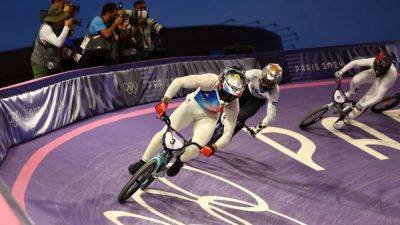The Seine is typically filthy. What to know before Olympic swimmers dive in
Over eight days in August 1900, dozens of swimmers dove into the muddy waters of the Seine River in Paris to compete in the second Olympic Games. Cheering crowds packed the riverbank, as the strong downstream current carried athletes to impossibly fast finish times.
In a newspaper review, editor W. T. Stead described the Seine as "the main street" of what was then "the greatest show on earth" — even if it did have a bit of a smell.
"It is extraordinary, the extent to which the French have utilized their river," wrote Stead, then 51.
"In hot weather the fragrance reminds one of Venice, but, odourous or otherwise, the bright, rushing current … adds immensely to the general effect."
This summer, Olympic athletes could find themselves back in the Seine as the Olympics return to Paris. Triathlon and marathon swimming are scheduled to take place in the river, where it has been illegal to swim for a century.
Politicians insist the water will be clean enough for athletes by then, but experts aren't so sure.
Like many old cities around the world, Paris has a combined sewer system, which means wastewater and storm water flow through the same pipes. Those pipes can reach capacity when it rains long and hard, meaning raw wastewater — like sewage — flows into the Seine instead of a treatment plant.
Swimming there has been banned since 1923, with a few exceptions for the odd competition.
The city has tried to clean up the river, but the water has tested unsafe for humans in recent weeks, though cleaner on other days. Data published by local authorities on E. coli bacteria levels in the Seine showed that the river was suitable for swimming six out of nine days between June 24 and July 2, according to Reuters.
Dan Angelescu, founder








